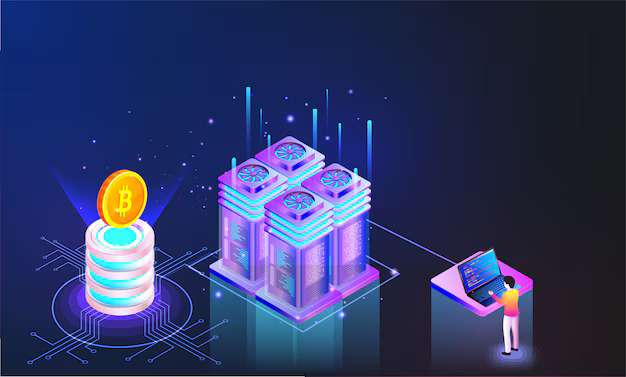Why Blockchain-Based Asset Tokenization Is the Future of Investment

The world of investment is evolving rapidly, driven by digital transformation. Among the key innovations reshaping this space is asset tokenization powered by blockchain technology. Asset tokenization offers a unique way to invest, trade, and own assets by converting real-world assets into digital tokens. This shift is changing how businesses and investors interact, creating a more accessible and efficient investment environment.
What Is Asset Tokenization?
Asset tokenization involves creating digital tokens on a blockchain that represent real-world assets such as real estate, stocks, commodities, or intellectual property. These tokens are tradable, divisible, and transferable. Each token holds a value tied to the underlying asset, enabling fractional ownership and seamless transactions.
Blockchain technology underpins this process by providing transparency, security, and immutability. Every transaction is recorded on a decentralized ledger, reducing fraud and ensuring trust. This system is reshaping the traditional investment model by lowering barriers and increasing market efficiency.
Why Blockchain Asset Tokenization Matters
Asset tokenization streamlines investment by removing intermediaries like brokers and banks. This creates direct, peer-to-peer transactions, reducing costs and increasing transaction speed. Additionally, blockchain-based tokenization enables round-the-clock trading, unlike traditional markets limited by operating hours.
Fractional ownership is another game-changer. Investors can buy small portions of high-value assets such as luxury properties or rare artworks. This accessibility democratizes investment, allowing more participants to diversify portfolios and reduce risk.
Blockchain-based asset tokenization also improves liquidity. Traditional assets like real estate are often considered illiquid due to slow sales processes. Tokenization makes these assets more liquid by enabling fast, secure trades on digital platforms. This liquidity can attract more investors, boosting asset value.
How It Works
The tokenization process starts by identifying an asset suitable for tokenization. The asset’s value is assessed and divided into digital tokens, each representing a share of ownership. These tokens are issued on a blockchain, creating a tamper-proof record. Investors can buy, sell, or trade these tokens securely.
For example, consider a commercial building worth $10 million. Tokenizing this asset into 1 million tokens means each token is worth $10. An investor can purchase 1,000 tokens, representing a $10,000 investment. Blockchain ensures transparent ownership records, reducing disputes and enhancing trust.
Key Benefits for Investors
Asset tokenization brings several benefits that make it attractive for investors and businesses alike:
- Enhanced Security: Blockchain ensures data integrity and prevents unauthorized changes.
- Global Reach: Investors can access global markets from anywhere.
- Lower Costs: Reduced reliance on intermediaries cuts transaction fees.
- Transparency: All transactions are traceable and verifiable.
- Accessibility: Lower investment thresholds enable broader participation.
Real-World Applications
Several industries are leveraging asset tokenization to unlock new investment opportunities:
- Real Estate: Tokenization allows fractional ownership of properties, making real estate investment more accessible.
- Commodities: Gold, oil, and other commodities can be tokenized for easier trading.
- Art and Collectibles: High-value artworks and collectibles become investable assets.
- Financial Instruments: Stocks, bonds, and mutual funds can be tokenized, enhancing liquidity.
For businesses, collaborating with a trusted crypto token development company ensures the smooth implementation of asset tokenization projects. Experienced firms provide customized blockchain solutions, ensuring scalability and security.
Overcoming Challenges
Despite its potential, asset tokenization faces challenges such as regulatory compliance, market acceptance, and technological complexities. Regulations vary by jurisdiction, requiring careful consideration before launching tokenized offerings.
Security is another concern. While blockchain is secure, implementing a well-audited smart contract is essential to prevent vulnerabilities. Partnering with a reliable crypto token development company ensures robust technical support and compliance.
Market education is equally important. Businesses must raise awareness about asset tokenization’s benefits and how it transforms investment. A well-informed investor base drives adoption and market growth.
The Future of Asset Tokenization
Asset tokenization is set to reshape the global investment landscape. As blockchain technology advances, more businesses will tokenize assets, expanding market liquidity and creating new investment models.
Institutional investors are already exploring asset tokenization as a way to enhance portfolio diversification. Governments and regulatory bodies are developing frameworks to accommodate this trend, paving the way for mainstream adoption.
By embracing asset tokenization, investors can gain access to diverse asset classes with lower capital requirements. Businesses can unlock asset value, raise funds efficiently, and enter global markets. The convergence of blockchain technology and investment promises a dynamic, transparent, and inclusive financial future.
Conclusion
Blockchain-based asset tokenization represents the future of investment by offering security, liquidity, and global accessibility. It eliminates intermediaries, lowers costs, and democratizes access to high-value assets. Partnering with a crypto token development company ensures businesses can navigate this evolving space with tailored blockchain solutions.
As the investment landscape evolves, asset tokenization on the blockchain is set to redefine how assets are owned, traded, and managed. Businesses and investors ready to embrace this digital transformation can unlock significant potential, making blockchain-based asset tokenization a cornerstone of tomorrow’s investment ecosystem.